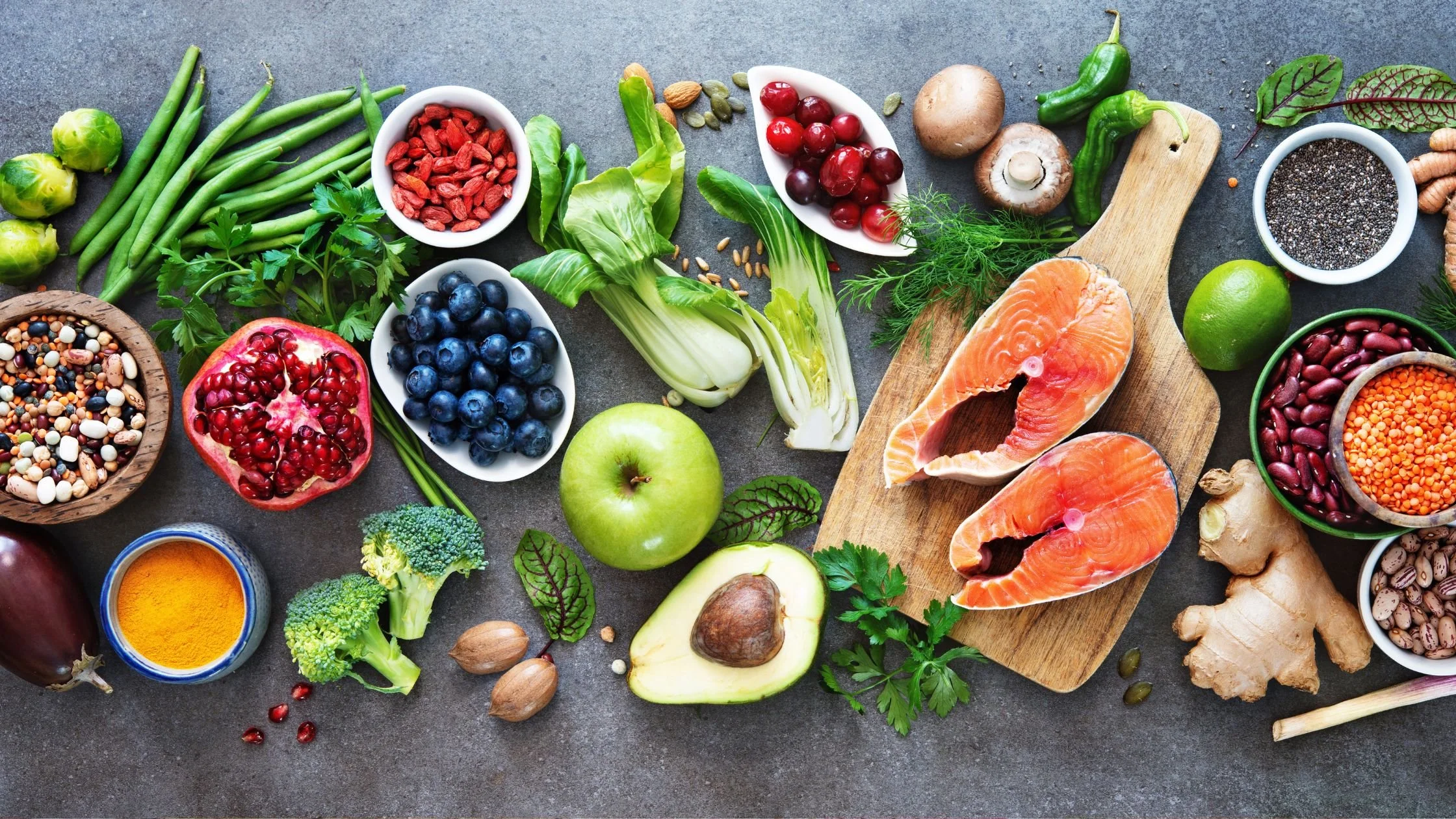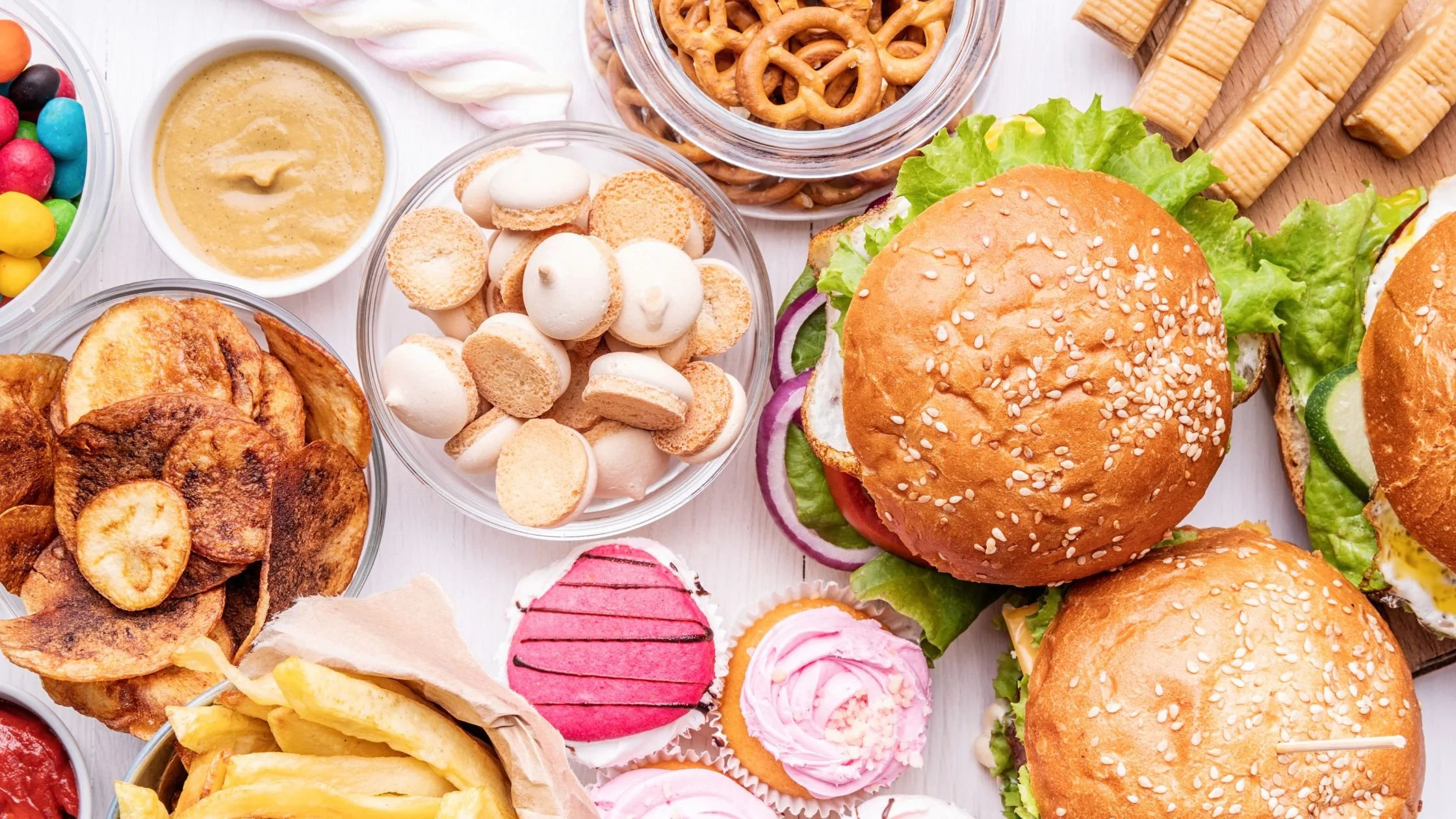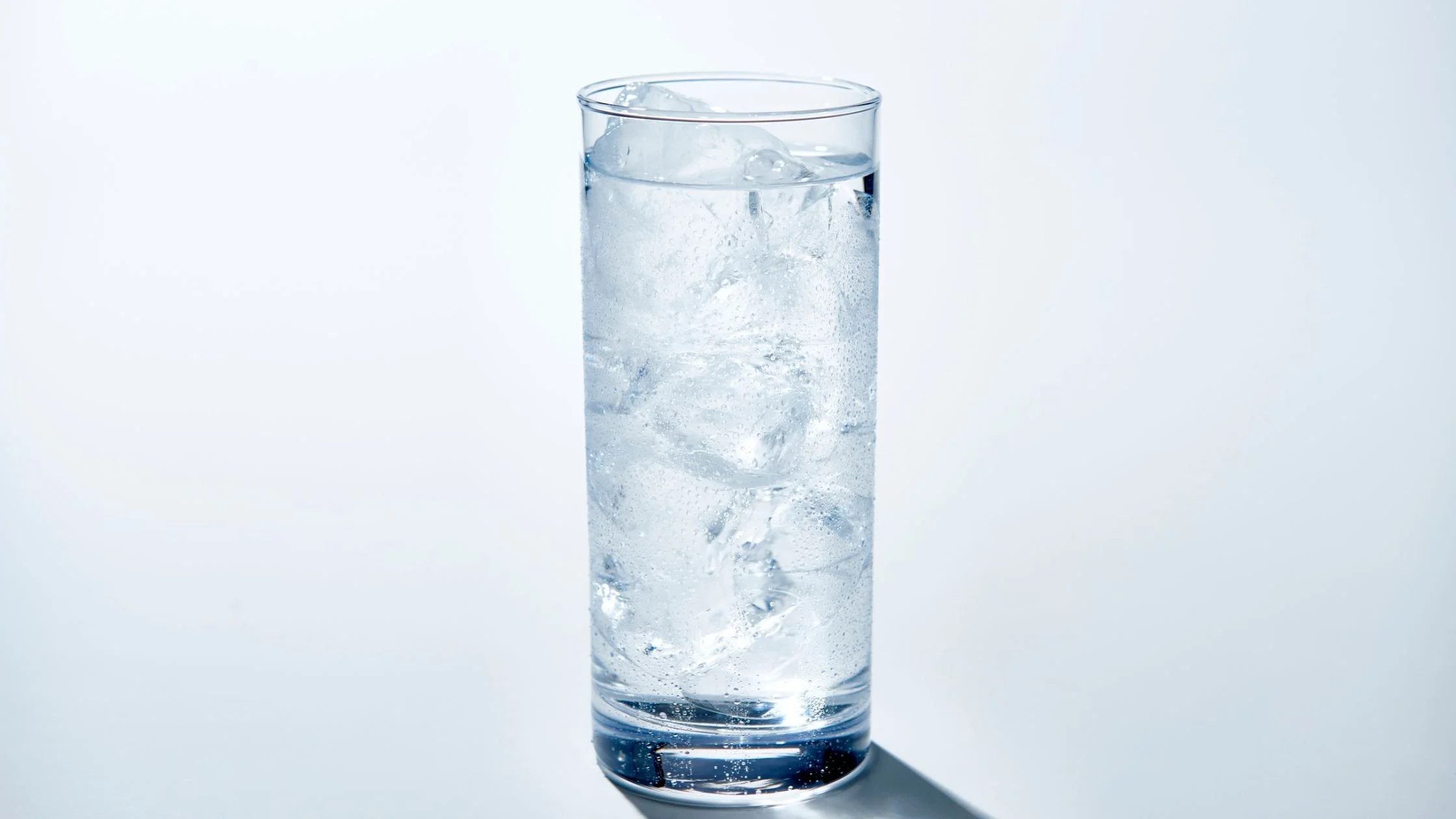When most people think about achieving clear, glowing skin, they turn to cleansers, moisturisers, serums, and sunscreen. While those play an important role, what often gets overlooked is that the food you eat every day has just as much of an impact on your skin as what you apply externally.
Your skin is your body’s largest organ and one of the most metabolically active. It reflects your internal health, including your diet, hydration, and inflammation levels. Let’s explore how what you eat can influence the health and resilience of your skin, and how to make practical changes that support it from the inside out.
What Is a Pro-Inflammatory Diet?
Inflammation itself isn’t bad, in fact, it’s an essential part of your body’s natural defence and repair system. The issue arises when inflammation becomes chronic, staying switched on for extended periods due to ongoing stress, poor sleep, or diet.
A pro-inflammatory diet is one that fuels this chronic, low-grade inflammation. It’s typically:
High in ultra-processed and fried foods
High in refined carbohydrates and added sugars (e.g. pastries, soft drinks, white bread)
Low in fruits, vegetables, and dietary fibre
Low in omega-3 fats (found in oily fish, chia seeds, flaxseeds, and walnuts)
This dietary pattern increases oxidative stress, which occurs when there’s an imbalance between free radicals and antioxidants. Over time, that can lead to:
Collagen breakdown and premature ageing
Slower wound healing and impaired skin repair
Increased acne, redness, or sensitivity
A dull, uneven skin tone
Put simply, a diet that drives inflammation can make your skin less resilient, less radiant, and more prone to irritation or breakouts.
Nutrients That Support Healthy Skin
The good news is that you can significantly reduce inflammation and improve skin health by building a diet centred around whole, nutrient-dense foods. Here’s how the key nutrients work:
Omega-3 fats (fish, chia, flax, walnuts): reduce inflammation and strengthen the skin barrier.
Vitamin C (kiwi with skin, citrus, capsicum, broccoli): supports collagen synthesis and protects against oxidative stress.
Vitamin E (nuts, seeds, avocado, olive oil): protects cell membranes and helps maintain hydration.
Vitamin A and carotenoids (sweet potato, carrots, spinach, eggs): promote skin repair and renewal.
Zinc and selenium (beef, legumes, eggs, Brazil nuts, seafood): aid wound healing and antioxidant defence.
Polyphenols (berries, tea, extra virgin olive oil, colourful produce): combat oxidative stress and environmental damage.
Together, these nutrients help your skin repair, regenerate, and defend itself against daily internal and external stressors.
Simple Ways to Eat for Better Skin
You don’t need a perfect diet to see noticeable improvements. Consistency matters more than perfection. Here are six practical, evidence-based steps to start with:
Add colour to your plate. Each colour in fruits and vegetables represents different antioxidants and phytochemicals that protect your skin cells. Aim for five to six vegetable serves and two fruit serves daily.
Include omega-3s regularly. Eat oily fish (like salmon or sardines) two to three times a week, or plant-based sources like chia and flaxseed in smoothies or protein oats.
Choose wholegrains over refined carbs. Wholegrains support gut health and help regulate inflammation, both of which influence skin balance and breakouts.
Limit added sugars and ultra-processed foods. Reducing these helps control inflammation and prevent oxidative damage to collagen and elastin.
Stay hydrated. Water supports circulation, nutrient delivery, and natural skin moisture. Aim for roughly 30–35 mL of water per kilogram of body weight daily.
Protect from the outside too. Nutrition complements but doesn’t replace sun protection. Always use SPF 30+ daily to prevent UV-related ageing and DNA damage.
OUR RECOMMENDATION
Your diet is one of the most powerful tools you have for supporting clear, resilient skin. A diet high in ultra-processed foods and added sugars drives chronic inflammation, oxidative stress, and collagen breakdown, while a diet rich in colourful plants, omega-3s, vitamins, minerals, and antioxidants strengthens your skin’s barrier, promotes repair, and enhances glow.
Healthy, radiant skin isn’t built from one product or supplement, it’s built from the nutrients you consume every day.
Want to improve your skin health through nutrition? Work with The Bodybuilding Dietitians to build a personalised, evidence-based nutrition plan tailored to your goals, lifestyle, and preferences. We’ll help you reduce inflammation, boost your skin health, and optimise performance, all while keeping your meals enjoyable and sustainable.


